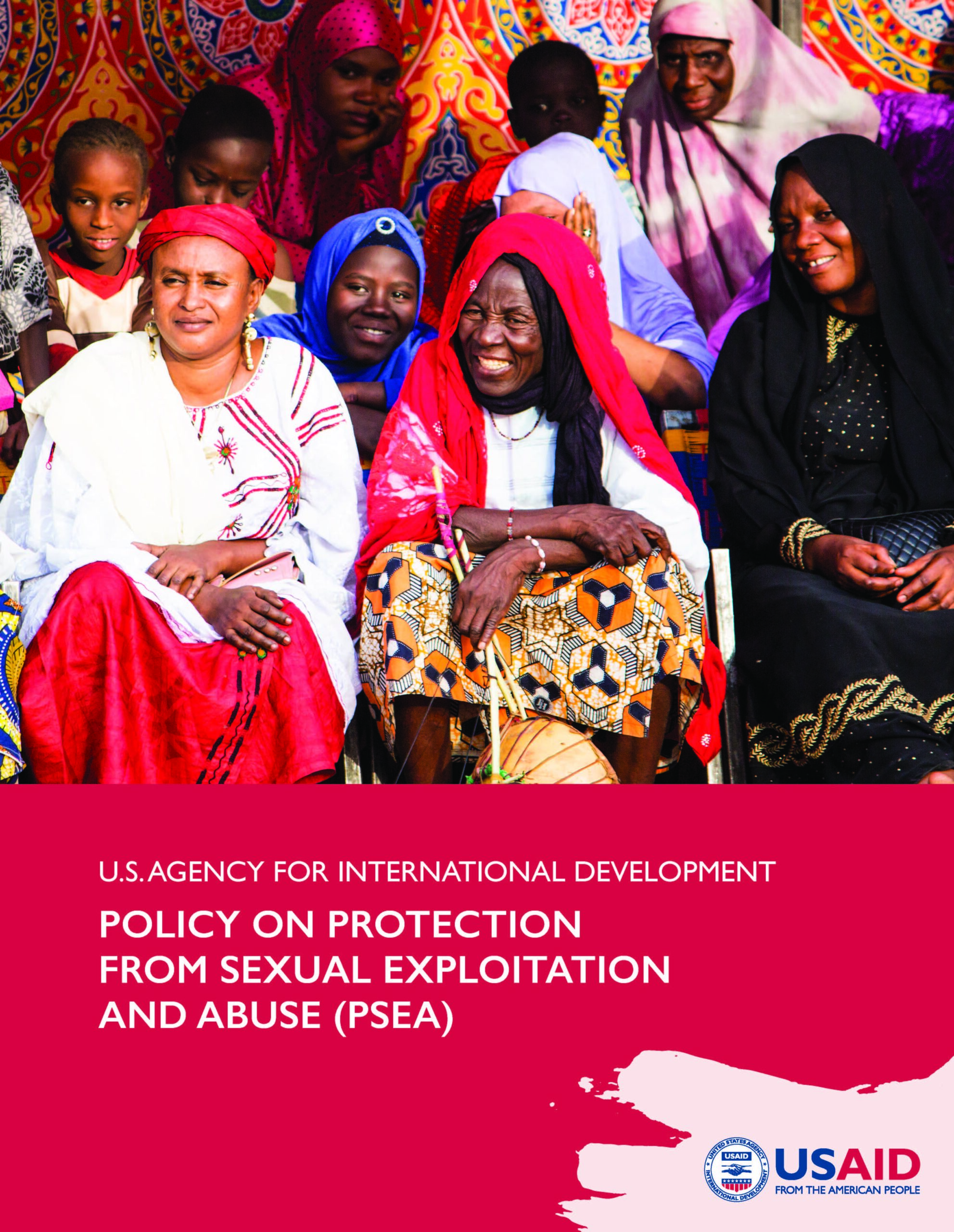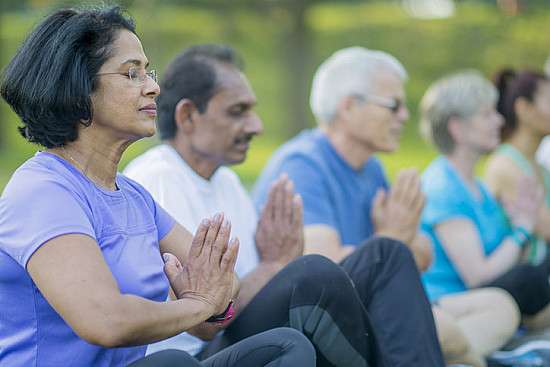The involvement of humanitarian workers in acts of sexual exploitation and abuse is a grave violation of our responsibility to do no harm and to protect people affected by crises. OCHA is firmly committed to the global fight to eradicate sexual exploitation and abuse.
In line with the Secretary-General’s Bulletin “special measures for protection from sexual exploitation and sexual abuse” (ST/SGB/2003/13), OCHA has established clear structures and procedures for ensuring compliance with the zero-tolerance policy. Standard operating procedures are in place for submission and receipt of complaints, reporting, investigation and victim assistance. PSEA focal points have been established in OCHA offices at headquarters, regional and country levels, and all staff members receive training and information on preventing and responding to acts of sexual exploitation and abuse.
At the field level, Humanitarian Coordinators (HCs) are charged with ensuring that effective systems are in place for preventing and responding to acts of sexual exploitation and abuse, and OCHA provides support to HCs to this end. HCs’ responsibilities on PSEA are included in their annual compacts, and HCs report regularly to the Emergency Relief Coordinator (ERC) on the matter. The topic is also a standing item in the HCs’ annual retreat.
As the Chair of the Inter-Agency Standing Committee (IASC), the ERC plays a key role in propelling progress on PSEA across the humanitarian system. The IASC Principals have taken concrete measures to ensure action on the issue. The Chair’s Statement issued in June 2018 outlines further collective IASC commitments and actions to eradicate acts of sexual exploitation and abuse by humanitarian personnel and to respond fully to incidents.
OCHA supports the IASC Champion on PSEA and Sexual Harassment in implementing priority actions through the network of IASC Senior Focal Points on PSEA. The IASC Champions strategy was endorsed in November 2018. Priority actions include establishment of safe and accessible community-based reports mechanisms, ensuring that survivors have access to assistance, and field-based PSEA networks wherever humanitarian assistance is delivered, and strengthening vetting, reference checking, investigation and disciplinary measures. To bolster confidence that reported incidents of SEA or sexual harassment will be investigated quickly and competently, OCHA has established an investigations fund to provide rapid grants to IASC entities to support investigations into SEA and SHA allegations.
OCHA supports the IASC Champion on Protection from Sexual Exploitation, Abuse and Sexual Harassment.
Two thirds of the 100 million people assisted by the World Food Programme (WFP) live in conflict-affected and insecure settings, which are often affected by gender inequalities, power imbalances, and general conditions which heighten the risk of abuse and exploitation, including of sexual nature.
Any acts where our employees and those associated with our work use their positions of power to exploit those we serve are against our very mission, values and standards of conduct. WFP has a zero-tolerance policy against sexual exploitation and abuse.
Sexual exploitation refers to any actual or attempted abuse of a position of vulnerability, differential power, or trust, for sexual purposes, including, but not limited to, profiting financially, socially or politically from the sexual exploitation of another. Sexual abuse is the actual or threatened physical intrusion of a sexual nature, whether by force or under unequal or coercive conditions.
Preventing sexual exploitation and abuse is a moral imperative for WFP, and as such, it is mainstreamed throughout the organization and its operations, and incorporated into our legal framework. Our approach to Protection from Sexual Exploitation and Abuse (PSEA) puts victims at the centre and is rooted in the United Nations Secretary General Bulletin on PSEA, which includes six core principles and defines SEA as ‘acts of gross misconduct’, constituting grounds for termination of employment.
In areas affected by conflict, natural disasters and other emergencies, people trust aid workers to assist and protect them.
The vast majority do so with professionalism and integrity. But some aid workers abuse their position of power through the sexual exploitation and abuse of those who depend on them, including children. These acts are unacceptable and violate criminal laws.
Sexual exploitation refers to any actual or attempted abuse of a position of vulnerability, differential power, or trust, for sexual purposes, perpetrated by aid workers against the children and families they serve. Sexual abuse is the actual or threatened physical intrusion of a sexual nature, whether by force or under unequal or coercive conditions, perpetrated by aid workers against the children and families they serve.
When a child is subjected to related misconduct at the hands of someone other than an aid worker, this is defined as sexual violence. Sexual violence against children occurs in every country, across all segments of society.
Women and children in emergency settings face the greatest risk of sexual exploitation and abuse. High levels of need resulting from scarce resources, food shortages or economic insecurity can intensify the power imbalance in emergency settings, raising the possibility of sexual exploitation and abuse by humanitarian aid workers on whom communities depend, or by peacekeepers providing protection.
Humanitarian assistance programmes should be designed and delivered not only to mitigate the risk of sexual exploitation and abuse, but to provide the necessary response when abuse occurs.
The U.S. Agency for International Development (USAID) will promote a world in which all individuals are able to live and work free from sexual exploitation and abuse (SEA). For the purposes of this Policy,“sexual exploitation” is any actual or attempted abuse by aid workers of a person in a position of relative vulnerability, for sexual purposes, including profiting monetarily, socially, or politically. “Sexual abuse” is any actual or threatened physical intrusion of a sexual nature, whether by force or under unequal or coercive conditions.
We seek to prevent SEA and ensure people are able to access USAID-funded services and activities safely, provide robust feedback to our implementing partners to mitigate risk, and facilitate the secure reporting of SEA violations when they occur.
We take a survivor-centered approach to SEA allegations, wherein we place the survivor’s experiences, considerations, and needs at the center of the process, with appropriate due process and accountability for alleged perpetrators of abuse. When the survivor is a child, the approach must consider the best interests of the child and engage with the family/caregivers as appropriate.
We will pursue collaboration with stakeholders across the aid sector in recognition of our collective responsibility for preventing and responding to SEA. We have zero tolerance for inaction on allegations of SEA, which means USAID staff must treat every allegation seriously and pursue appropriate action with the implementing partner involved to resolve it.
In preventing and responding to SEA, we will focus on three mutually reinforcing objectives:
- Educating and empowering USAID staff;
- Changing how we do business, and;
- Holding each other accountable.
Each of these objectives integrates cross-cutting principles and approaches to prioritize prevention and survivors’ needs, lead through change from within, work with others to achieve system-wide change, adapt to each context in which we work, and amplify the voice and power of the people we serve. Taken together, the PSEA Policy will seek to achieve the following outcomes:
- Improve our performance in addressing SEA allegations to ensure timely and consistent response to each incident and, through due process, hold perpetrators accountable;
- Improve communication and engagement with the populations we serve in our development and humanitarian-assistance programs; and
- Reduce incidents of SEA significantly over the long term (although reports of SEA could increase in the near term as confidence in the PSEA Policy spurs increased reporting).
Sexual exploitation and abuse by humanitarian workers inflict harm on those the humanitarian community is obligated to protect and jeopardizes the credibility of all assistance agencies. Humanitarian workers are expected to always uphold the highest standards of personal and professional conduct to protect beneficiaries of assistance.
The IASC is committed to protecting affected people from sexual exploitation and abuse in all humanitarian response operations. From the normative to the technical level, the IASC has taken determined action to strengthen the humanitarian sector’s response with a victim-centred approach.
The IASC strives to:
- Ensure a victim-centred approach to addressing sexual exploitation and abuse and sexual harassment;
- Promote positive change in organizational culture through strategic communications and role modelling;
- Improve referencing systems to stop transgressors from moving through the humanitarian sector;
- Strengthen sector-wide investigation capacity;
- Support collective activities of in-country networks.
In January 2022, the IASC welcomed the new IASC Champion on PSEAH, Mr. Andrew Morley, Chair of SCHR (President of World Vision International).
IASC Champion’s priorities lie across three domains:
- Affected Population-Focused
The Champion will lead the IASC to agree upon a definition of a victim/survivor Centred approach, its main principles, and key entities/actions involved in its implementation including prevention work, investigations, and response to SEAH violations.
- Country-Level
The Champion will support the development of an institutionalised five-year project to centrally employ and deploy IASC PSEA coordinators to the 15 highest risk contexts and mobilise political support and additional donor funding for it.
- System Improvement
The Champion will lead the continued process of culture change started under the UNHCR and UNFPA Championships, building on the existing work of SCHR to ensure that the sector actively evidences a zero-tolerance approach for inaction on SEAH.
For more details see IASC PSEAH Championship Priorities, Andrey Morley/SCHR 2022.
1. INTRODUCTION
1.1. Background on SEA and Inter-Agency Cooperation
Sexual exploitation and abuse (SEA) by aid workers directly contradicts the principles upon which humanitarian action is based and represents a protection failure on the part of the aid community. SEA inflicts harm on those whom the humanitarian community is obligated to protect, as well as jeopardizes the credibility of all assistance agencies. Humanitarian workers are expected to uphold the highest standards of personal and professional conduct at all times to protect beneficiaries of assistance. Sexual exploitation and abuse of affected populations constitutes gross misconduct and will result in disciplinary action, including immediate termination of employment and referral for criminal prosecution, where appropriate.
In recognition of the global concern over SEA, the Inter-Agency Standing Committee (IASC) has prioritized efforts to prevent and respond to these abuses at both the agency level and through collective efforts in the field. In 2002 the IASC adopted six core principles intended to set forth standards to prevent SEA:
Six Core Principles Relating to Sexual Exploitation and Abuse
1. Sexual exploitation and abuse by humanitarian workers constitute acts of gross misconduct and are therefore grounds for termination of employment.
2. Sexual activity with children (persons under the age of 18) is prohibited regardless of the age of majority or age of consent locally. Mistaken belief regarding the age of a child is not a defense.
3. Exchange of money, employment, goods, or services for sex, including sexual favours or other forms of humiliating, degrading or exploitative behaviour is prohibited. This includes exchange of assistance that is due to beneficiaries.
4. Sexual relationships between humanitarian workers and beneficiaries are strongly discouraged since they are based on inherently unequal power dynamics. Such relationships undermine the credibility and integrity of humanitarian aid work.
5. Where a humanitarian worker develops concerns or suspicions regarding sexual abuse or exploitation by a fellow worker, whether in the same agency or not, he or she must report such concerns via established agency reporting mechanisms.
6. Humanitarian workers are obliged to create and maintain an environment which prevents sexual exploitation and abuse and promotes the implementation of their code of conduct.
These principles were incorporated into the UN Secretary General’s Bulletin on SEA in 2003. The bulletin outlines a zero-tolerance policy toward SEA, obliges UN staff to report incidents of abuse, and is binding on all UN staff, including all agencies and individuals who have cooperative agreements with the UN. Subsequent voluntary agency commitments, such as the 2006 Statement of Commitment on Eliminating Sexual Exploitation and Abuse by UN and Non-UN Personnel, as well as internal agency policies, have substantially broadened the international commitment to fight SEA and have established standards of conduct that are applicable to all “personnel” and at all times, including when off duty and on leave. However, the initial core standards set forth by the IASC in 2002 are reflected in all subsequent commitments on prohibited staff conduct, both by UN agencies and the broader humanitarian community.
PSEA is directly linked to agency Accountability to Affected Populations, including commitments to engage in consultations and share 2-way feedback. In December 2011 the IASC Principals set forth the Transformative Agenda and a series of Protocols, including the Accountability to Affected Populations Operational Framework, in effort to improve collective humanitarian response. The Accountability Framework acknowledges that preventing SEA is considered integral to all operations, and one of the key objectives is to “systematically communicate with affected populations using relevant feedback and communication mechanisms” throughout all phases of the programme cycle. The Principals also endorsed five Commitments to Accountability to Affected Populations (CAAP) and agreed to incorporate them into the policies and operational guidelines of their organizations and promote them with operational partners, within Humanitarian Country Teams, and amongst cluster members. Commitment Three – relating to Feedback and Complaints – actively commits agencies to “seek the views of affected populations to improve policy and practice in programming, ensuring that feedback and complaints mechanisms are streamlined, appropriate and robust enough to deal with (communicate, receive, process, respond to and learn from) complaints about breaches in policy and stakeholder dissatisfaction.”
Despite this collective articulation of commitment, abuses by aid workers continue. The 2015 independent Whole of System Review of Protection in Humanitarian Action noted that despite progress, “systematized engagement with affected populations and peer-to-peer accountability is still lacking.” Researchers noted concerns that PSEA requires a specialized approach, including confidential complaints and investigations procedures at both the system and individual agency level. In 2012 the IASC Task Force on PSEA identified inter-agency cooperation in the creation and maintenance of community-based complaints mechanisms (CBCMs) as a key component in the prevention and response to SEA. For complaints to come forward, local communities need to be informed that humanitarian assistance is free and never conditioned on sexual favors. Beneficiaries of humanitarian assistance and humanitarian staff both need to be informed how to access the appropriate complaints mechanism if SEA occurs, especially in a humanitarian response situation where multiple agencies are present. Furthermore, an effective CBCM requires inter-agency coordination to ensure consistent messaging and that access to the mechanism is as broad and straightforward as possible for potential complainants.




